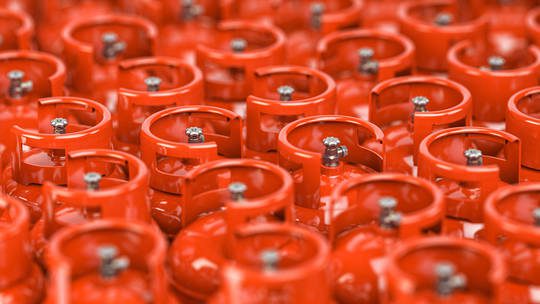Africa
Niger forbids the export of cooking gas

Analysts caution that Nigeria, a neighbour and a significant LPG consumer, may be impacted by the action.
The government of Niger announced on Tuesday that all exports of liquefied petroleum gas (LPG), popularly referred to as cooking gas, are now prohibited until further notice.
The authorities reportedly want national production to concentrate on serving the domestic market, according to local media sources. However, exporters will be able to get a special licence allowing sales overseas if there are surpluses.
On October 1, 2023, the prohibition went into effect.
Previously, the majority of Niger’s excess LPG was exported to Nigeria, which is the continent’s largest user, with an estimated annual consumption of roughly 1.8 million metric tonnes. Analysts caution that Nigeria, which is largely reliant on imports due to the lack of indigenous LPG production, may be impacted by the restriction.
Abdoulaye Issa, the energy and petroleum minister for Niger, claims that the country’s objective to advance industrialization and build its indigenous gas industry includes the embargo. Issa pointed out that Niger’s economy suffered as a result of its nation’s practise of exporting LPG to Nigeria at a discount.
Due to regional and international sanctions that were imposed after a military coup in Niger in July of this year, the country has been experiencing an economic catastrophe. Since President Mohamed Bazoum was overthrown, the National Council for the Salvation of the Homeland, led by Guard Commander Abdourahamane Tchiani, has been in charge of Niger.
On July 30, the Economic Community of West African States (ECOWAS) reacted negatively to the coup and slapped sanctions on the new Niamey government. Along with closing their borders, member states also ceased all financial dealings with Niger and froze the state assets of Niger held in each nation’s central banks.
Given that Nigeria is a member of ECOWAS, some commentators think that political and diplomatic considerations may have contributed to Niger’s prohibition on LPG exports. Nigeria shut off Niger’s access to electricity in August as part of the sanctions connected to the coup. Previously, it met 70% of Niger’s electrical requirements.
